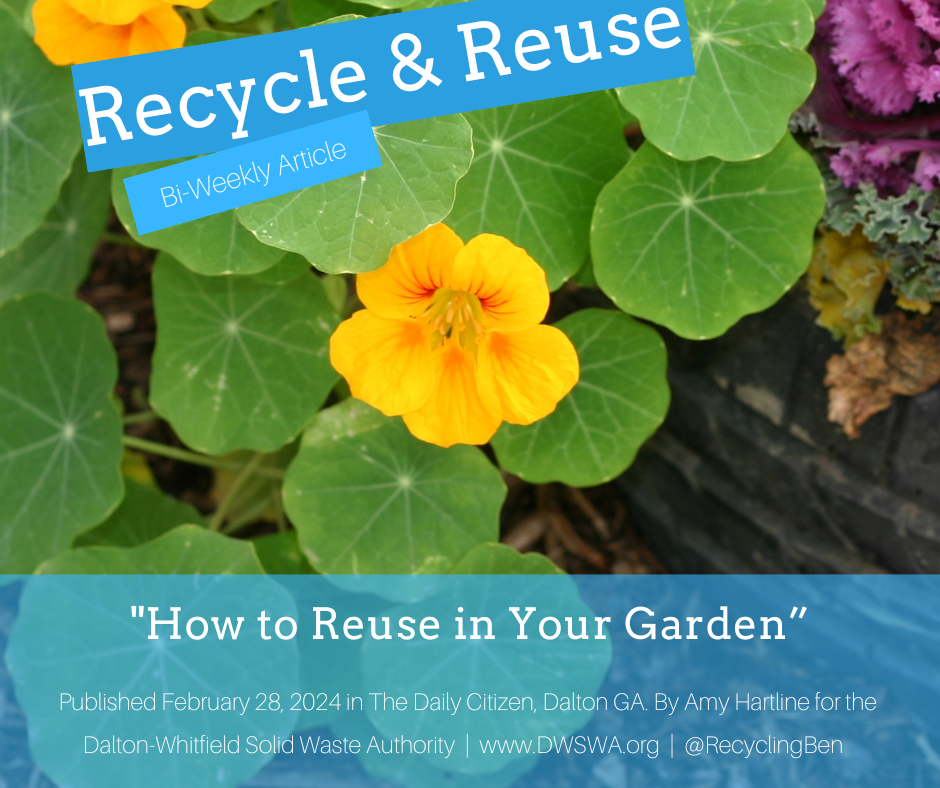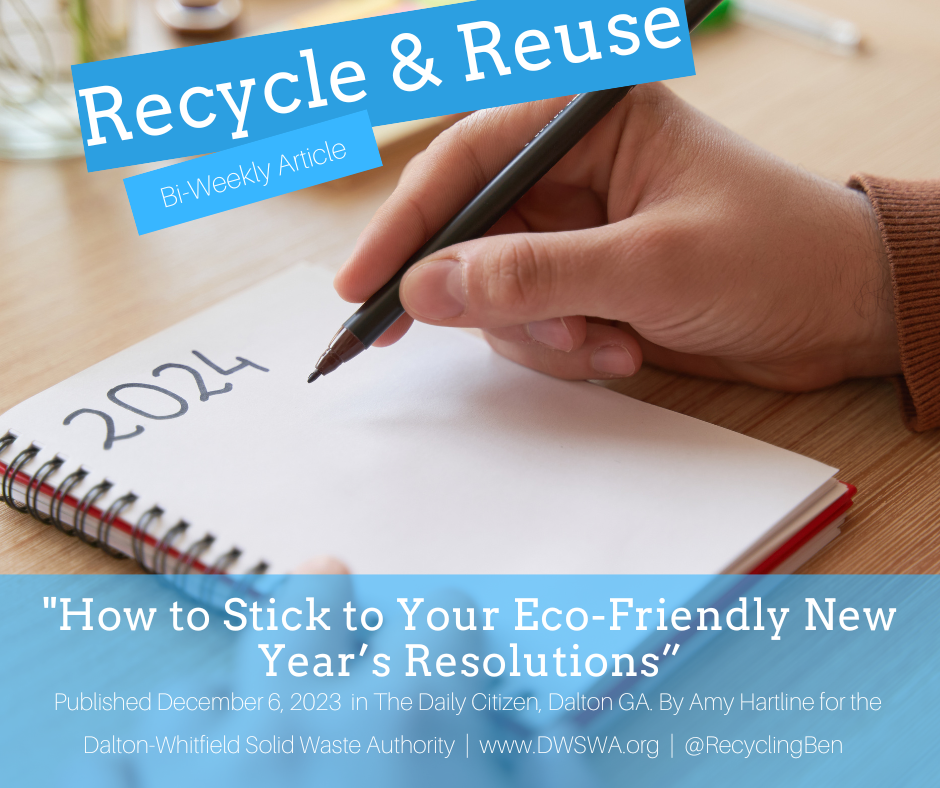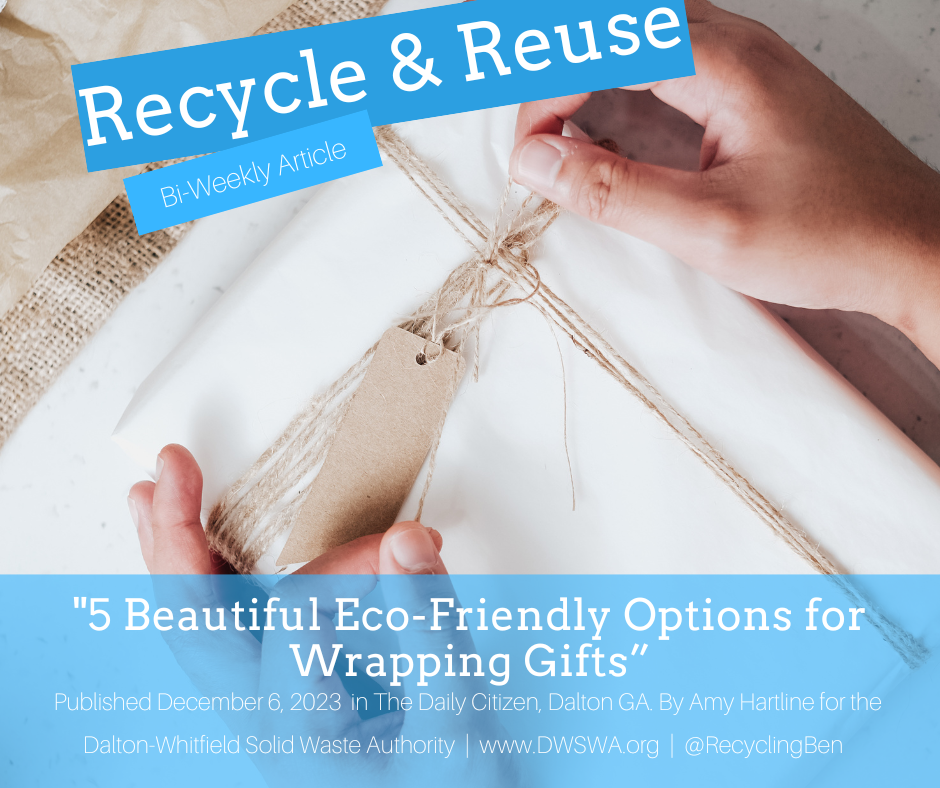Weddings that Aren't Wasteful : Recycle and Reuse
/Change out the shiny, plastic confetti for soft, beautiful flower petals for an simple eco-friendly switch during a wedding.
Fall is wedding season in the South and this year I’ll be joining the ranks of brides trying to plan a wedding without going crazy from all of the stress involved. Hosting a wedding or a party for a large group can lead to a lot of items on your to-do list and a lot of waste. From the beginning of the planning process to the end of the party the day of, there are multiple ways to cut down on the waste generated from a wedding or any large get-together you may be planning. As always, starting with the four “Rs,” Reduce, Reuse, Recycle, and Rot can help you plan an eco-friendly celebration.
The first of the 3Rs is “Reduce.” Invitations offer a great opportunity to practice this R. Try going paperless and sending specially designed e-vites over email or social media instead. You can easily design your own invitation on Canva.com that you can then send out as a picture over text. If you still want to have paper invites, make sure you go for paper made from recycled content or try making them out of seed paper. These are a fun surprise for guests because after they receive their invitation, they can plant it in the ground and grow wildflowers.
Hold your ceremony and reception in one place. This helps reduce fuel emissions from guests traveling from one place to another. When choosing where to have your event, look for a space that will need minimal decorations. This will save the materials from being needed, save you money, and save time from having to set up and take down decor. For the decorations that you do use, pick décor that you can reuse or donate to a local thrift store afterward. Look for local companies that you can rent décor from and take the stress out of finding new homes for the items.
Instead of cut flowers for your venue choose potted plants or trees instead. This way the plants can be reused after. Aim to get your greenery from local sources as some flowers for weddings end up being flown from thousands of miles away leading to a massive carbon footprint even though there are close and beautiful alternatives. To keep cut-flowers sustainable make sure they are local and will be in season the date of your wedding.
Buy a pre-owned wedding dress. There are plenty of sites online to find once-worn wedding dresses for a fraction of the cost and this helps you follow the second “R,” reuse. By reusing a dress you are cutting down on the waste by at least half automatically! You can also work with a local seamstress to alter the dress if there are details or elements you want changed.
Buying organic food to feed your guests can drive the cost of their meals up, but by planning meals based off of produce that is in-season you can bring that cost back down. Aim to find caterers that source their food from locally grown sources. This requires less fuel to transport and the food needs less refrigeration and therefore requires less energy usage as well.
Buffets cause a huge amount of food to be left uneaten at the end of the night. If feasible, opt for a plated dinner to monitor food needs. Work with your caterer to see if it is possible to donate leftovers to a homeless shelter or if they are able to compost the leftovers.
Lasting for only a few seconds, the little bits of paper or plastic confetti can be easily forgotten after a grand exit, but every little bit of litter makes a difference. Choose biodegradable options instead that won’t wreak havoc on the ecosystem. Some natural alternatives include; dried flowers, dried leaves, or fresh herbs. A word of caution; stay far away from balloon releases as each balloon released eventually becomes latex litter that will never biodegrade and often makes its way into our waterways.
Weddings are a time of joy and shouldn’t be spoiled by litter or a literal ton of waste being produced. At the end of the event recycle all plastic bottles and jugs, paper, or glass bottles and jugs. By thinking ahead and making small adjustments, it can be easy to cut down on the impact of any large event or wedding.
































